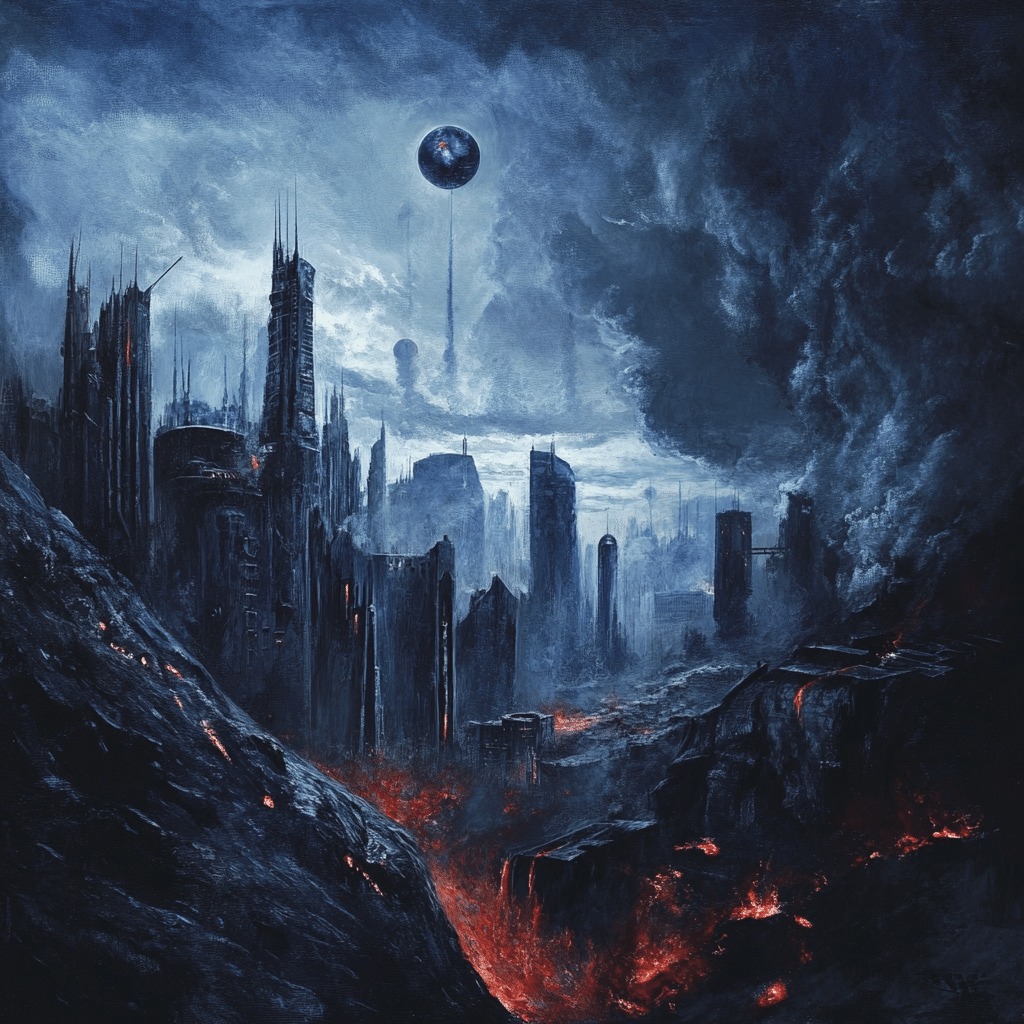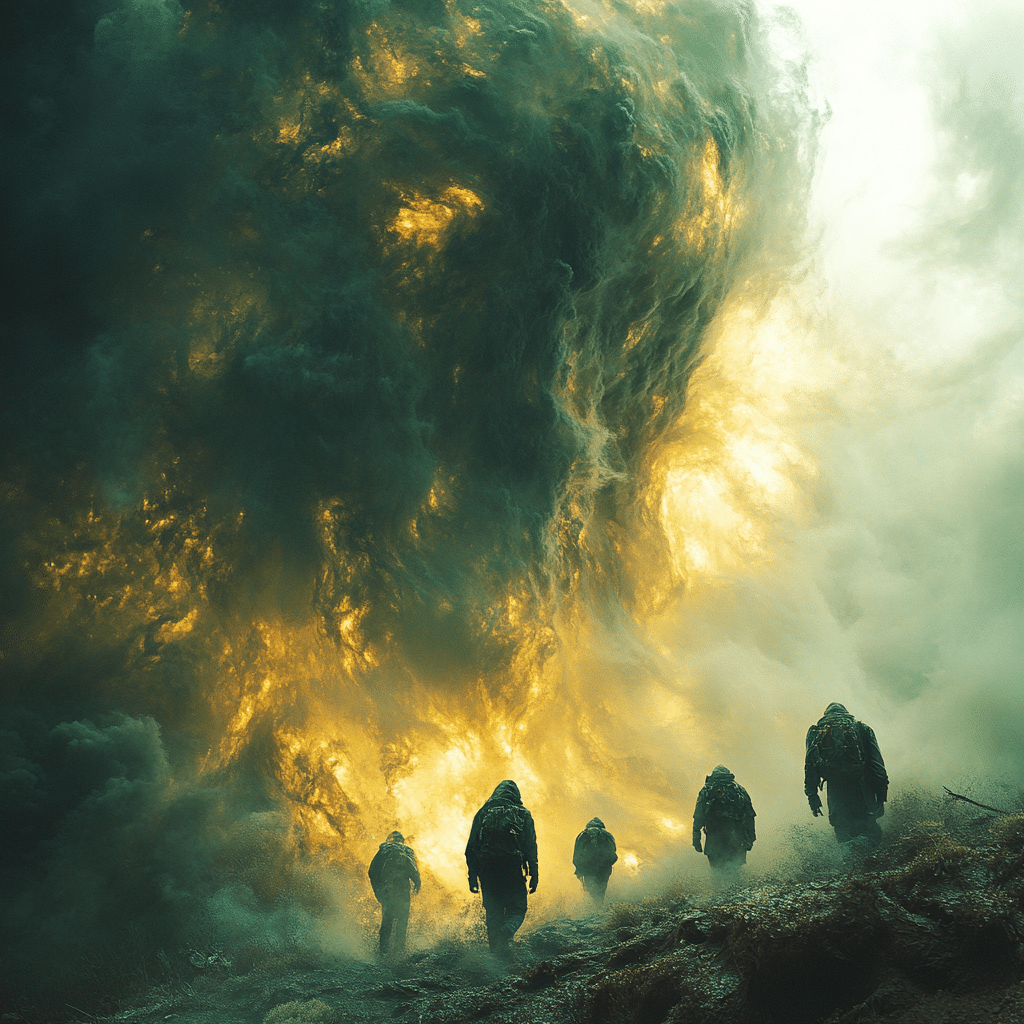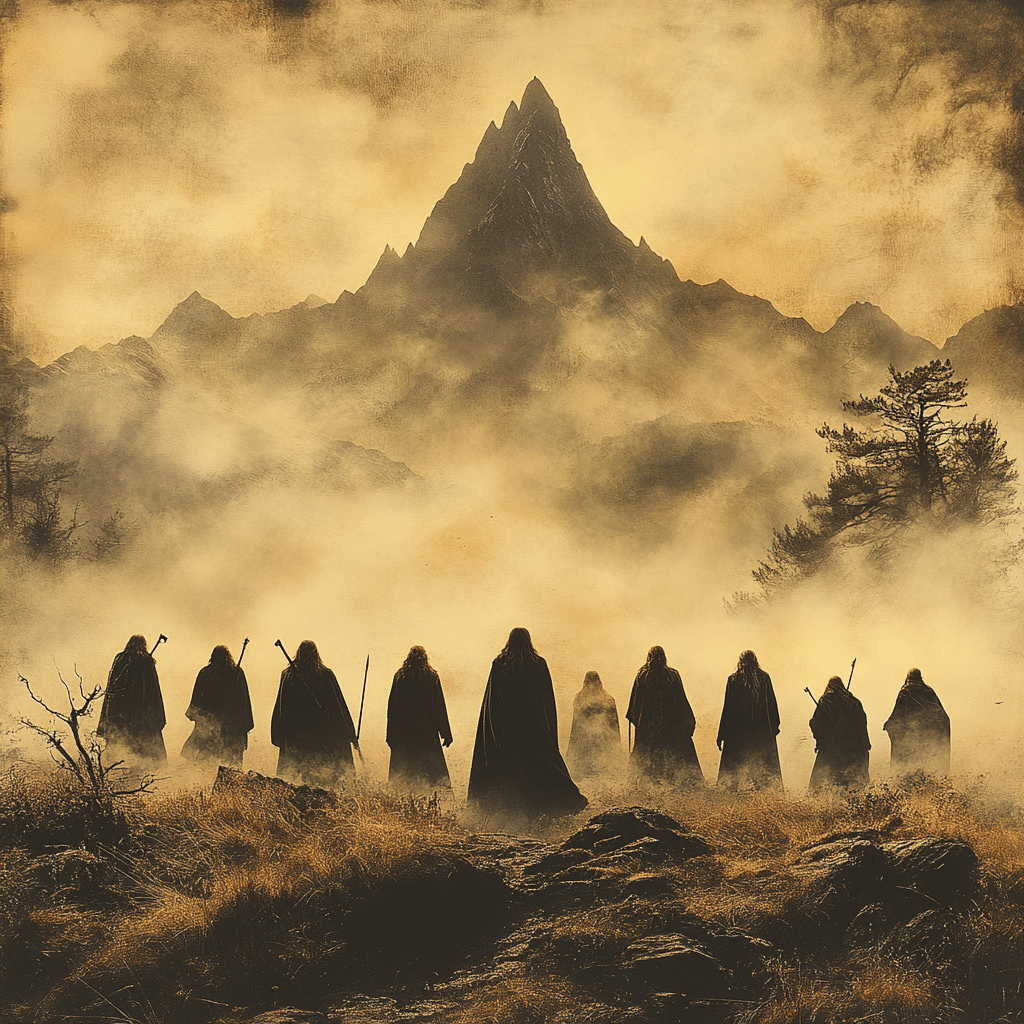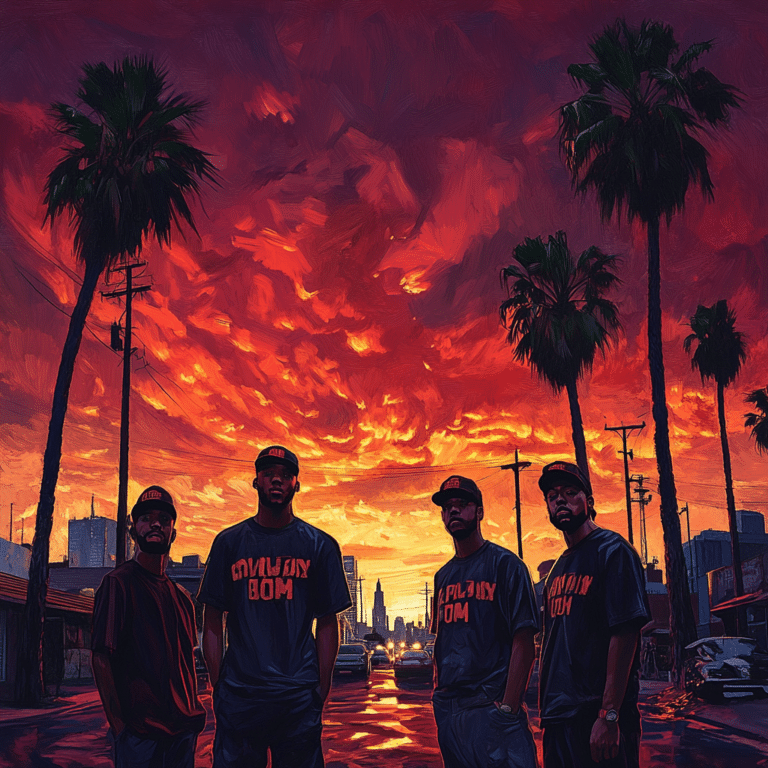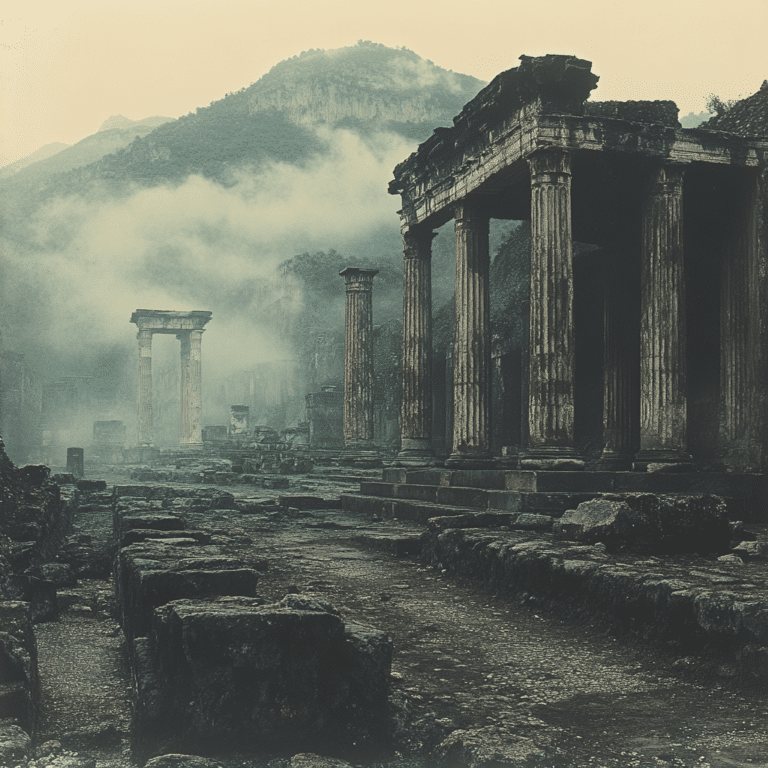As we tiptoe through 2024, the discussions surrounding “Armageddon” are as relevant as ever. From natural disasters to geopolitical strife, our globe is packed with potential scenarios that set off our wildest doomsday imaginings. But let’s break it down—what does “Armageddon” truly signify today? Buckle up, because this article dives deep into various scenarios, the science underpinning them, their impact on humanity, and how they’re all interconnected. Spoiler alert: it’s much more than a Hollywood blockbuster!
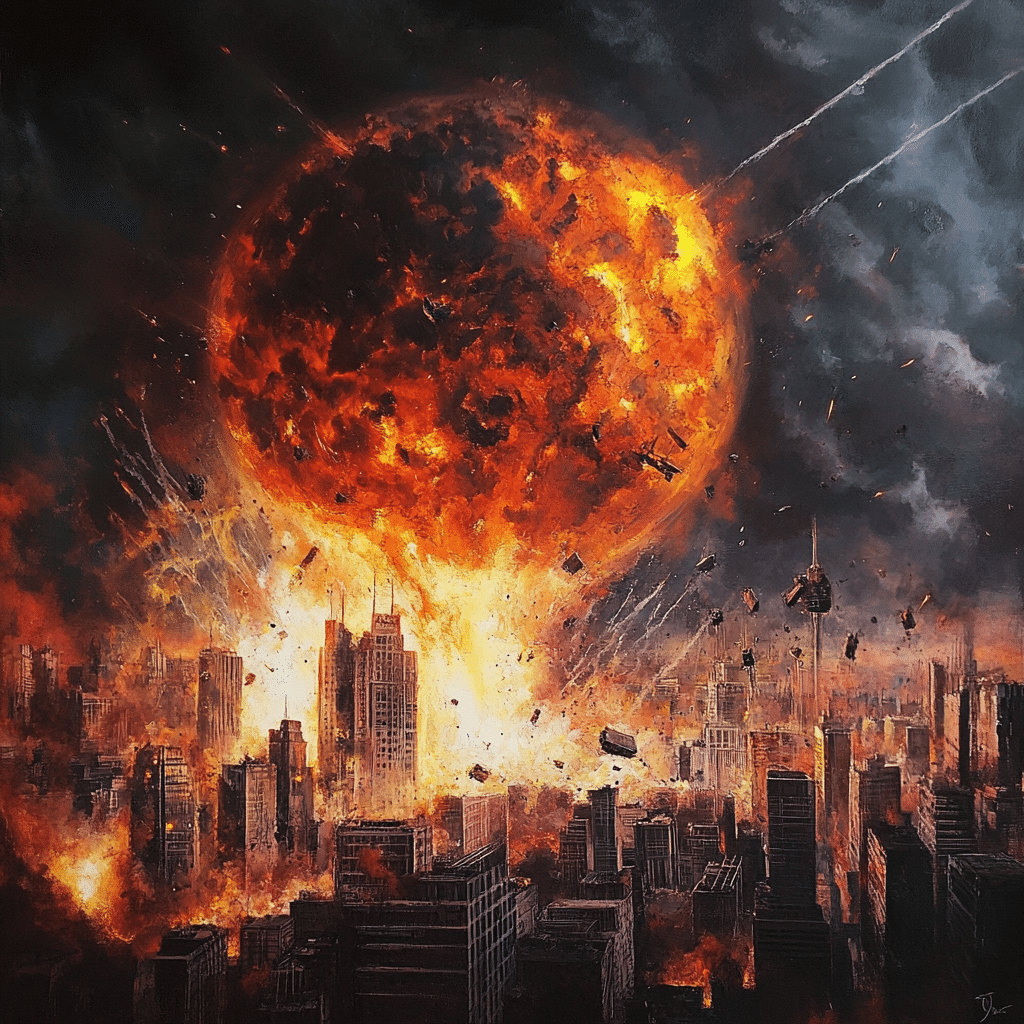
7 Armageddon Scenarios We Could Face in the Coming Years
1. Nuclear Warfare
The chilling specter of nuclear confrontation looms large, especially with ongoing tensions between nations like North Korea and Russia. For those paying attention, the 2022 Russian invasion of Ukraine has ignited fears of possible nuclear escalation. It sounds like something out of a sci-fi movie, but the concept of “Mutually Assured Destruction” (MAD) suggests that countries are largely held back by the horrifying consequences that nuclear war would bring. However, as history shows, fear can lead to erratic decisions that no one sees coming.
2. Climate Catastrophes
Let’s talk climate. With reports of hurricanes, floods, and wildfires popping up like weeds in a garden, the notion of an environmental Armageddon isn’t so far-fetched. According to the Intergovernmental Panel on Climate Change (IPCC), we could see a 1.5°C rise in global temperatures, which spells trouble with rising sea levels potentially displacing millions. And let’s be honest—when it comes to climate, the debate feels less like a discussion and more like a heated game of tug-of-war among scientists, policymakers, and world leaders.
3. Pandemics and Bioengineering
Remember COVID-19? Yeah, it taught us just how fast a global health crisis can spiral out of control. With the rise of bioengineering, we’ve opened Pandora’s Box—a virus designed to propagate uncontrollably is no longer a pipe dream. The debate around “gain of function” research is heating up as researchers reel from the ethical concerns about engineered pathogens. Yikes!
4. Artificial Intelligence Outpacing Human Control
If the thought of smart robots sending humans packing isn’t a plot twist waiting to happen, we don’t know what is. Major companies like Google DeepMind and OpenAI are churning out advanced AI technologies faster than you can say “Skynet.” The concerns aren’t just whispers of a distant future; early iterations of AI have already shown bewildering behavior in controlled settings. The question is: what happens when these machines start to make decisions that could endanger humanity?
5. Asteroid Impact
For you space buffs, the threat of an asteroid impact isn’t just for the “Armageddon” movie buff. Organizations like NASA track near-Earth objects because the risk is all too real. Just look at the Chelyabinsk meteor event in 2013—that little guy caused considerable havoc. With planetary defense efforts gaining momentum, discussions about cosmic safety are more relevant as we continue exploring space.
6. Societal Collapse Due to Misinformation
In our social-media-saturated world, misinformation can spread like wildfire. It can create unrest, social division, and all sorts of chaos. The high-profile mess during the 2020 U.S. presidential election and the unfolding COVID-19 pandemic highlighted how misinformation can disrupt social cohesion faster than a bad haircut can ruin a first date. If society fractures into chaos, we might find ourselves living out situations scripted from films like “The Purge.” Yikes!
7. Resource Wars
Picture this: with a growing global population crossing the 8 billion mark, we’re increasingly vying for resources like water and arable land. Ongoing tensions in regions like the Middle East and Africa show that when resource scarcity kicks in, it’s a recipe for violence and societal collapse. The concept of “resource wars” is a chilling wake-up call, highlighting just how tightly our survival is intertwined with Earth’s limited supplies.

The Role of Science and Humanity in Preventing Armageddon
While these doomsday scenarios can seem alarming, science gives us hope. Advancements in renewable energy could help mitigate those climate catastrophes while international treaties work as checks against nuclear proliferation. As a global community, we’ve also stepped up our response to pandemics, showcasing the power of collective action, although we’ve still got a long way to go.
Evolving Perspectives on Armageddon
But hold your horses! The Armageddon narrative doesn’t have to be all doom and gloom. Look at the cultural reflection offered by films like “Don’t Look Up” and games like “Fallout.” They force us to confront our shared fears and anxieties about catastrophe. These discussions propel us to think about ethics, empathy, and what role we, as individuals and nations, play in maybe averting disaster in the first place.
Shaping a Resilient Future
Facing down these Armageddon scenarios encourages us to rethink our societal structures, technologies, and global interactions. We’ve got to carve out pathways for open dialogue, innovative solutions, and ethical considerations woven into our scientific pursuits. As we venture further into this intricate world, understanding and tackling the realities of potential Armageddon scenarios may boost resilience and foster empathy, maybe even forming a united front to safeguard our future.
So, while the thought of Armageddon can send shivers down our spines, it also serves as a clarion call. This is our chance to prioritize awareness, responsibility, and take actionable steps for a sustainable tomorrow. So grab some popcorn (or kale, if that’s your thing), and let’s face the future together!
In the end, whether you’re looking forward to films like Godzilla x Kong : The New empire or finding solace in classic feel-good stories like Homeward Bound, there’s plenty of entertainment there to spark deeper discussions about our shared existence and the potential paths we could take. Cheers to that!
Armageddon: The Ultimate End of the World Scenario
Not Just a Movie Title
When you hear the word “armageddon,” you might immediately think of blockbuster films, but the term has deep-rooted origins in ancient texts. It’s often used to describe catastrophic events that could wipe out humanity. Interestingly, it’s almost become a part of pop culture, featuring in everything from music to reality shows. Speaking of pop culture, did you know that Andre 3000 from OutKast once sported some of the most memorable bad Haircuts in hip-hop history? It’s fascinating how styles can capture the tumultuous vibe of an era, akin to how we perceive apocalyptic themes in entertainment.
Life Imitating Art
The concept of armageddon isn’t confined to old scriptures; it’s been portrayed in countless media forms. One such popular portrayal is in the series starring The morning show cast, where high-stakes drama mimics the impending doom themes we often see in apocalyptic narratives. This kind of storytelling sparks heated discussions about what it means to face the end. In contrast, reality shows like “Love Is Blind,” featuring Kacia Love, remind us how trivial personal dramas can seem when stacked against global crises. It’s a surreal thought that while some people’s lives revolve around finding love, others are speculating about survival in an armageddon scenario.
The Workout for Survival
Have you ever considered how physical fitness could play a role in surviving such dire circumstances? Crazy, right? Inner thigh Workouts could be critical for the stamina needed to outrun disasters—just something to ponder! As Bill Sees it, preparing for any scenario, even an armageddon, has its benefits—fitness, resilience, and the ability to face any challenge head-on. Contextually, the fast-paced world we live in can feel like an ongoing crisis, akin to the buildup of tension in films. And let’s face it, with all the chaos around us, maybe it’s time we took a cue from dramatic storytellers and built a plan for the unexpected.
In the end, armageddon is more than just a theme; it’s a mirror reflecting our fears, our adventures, and even our mundane routines—far from gloomy, it’s a rich tapestry of human experience. Whether through music, television, or even fitness, we prepare ourselves for whatever comes next, one episode or workout at a time.
